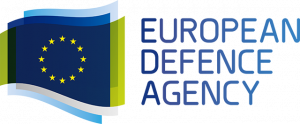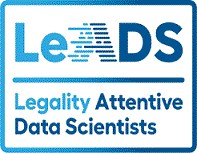Workshops
Workshops
The 11th Workshop on “Mining Humanistic Data” (MHDW)
The Mining Humanistic Data Workshop (MHDW) aims to bring together interdisciplinary approaches that focus on the application of innovative as well as existing artificial intelligence, data matching, fusion and mining and knowledge discovery and management techniques to data derived from all areas of Humanistic Sciences.
The 2nd Workshop on “Artificial Intelligence in Biomedical Engineering and Informatics” (AI-BEI)
Artificial Intelligence (AI) is gradually changing the routine of medical practice, and the level of acceptance by the medical personnel is constantly increasing. Recent progress in digital medical data acquisition through advanced biosignal and medical imaging devices, machine learning and high-performance cloud computing infrastructures, push health-related AI applications into areas that were previously thought to be only the province of human experts. Such applications employ a variety of methodologies, including fuzzy logic, evolutionary computing, neural networks, or deep learning for producing AI-powered models that simulate human physiology.
The 7th Workshop on “5G – Putting Intelligence to the Network Edge”
(5G-PINE)
The 7th 5G-PINE Workshop has been established to disseminate knowledge obtained from ongoing EU projects as well as from any other action of EU-funded research, in the wider thematic area of “5G Innovative Activities – Putting Intelligence to the Network Edge” and with the aim of focusing on Artificial Intelligence (AI) in modern 5G telecommunications infrastructures.This should take place by emphasizing upon associated results, methodologies, trials, concepts and/or findings originating from technical reports/deliverables, from related pilot actions and/or any other relevant 5G-based applications, intending to enhance intelligence to the network edges.
Organized by the Hellenic Telecommunications Organization and dozens of EU scientific Partners.
The 2nd Workshop on “Artificial Intelligence and Ethics” (AI & ETHICS)
The 2nd AIETH workshop should aim in responsible global AI. Respective scientists must be prepared to act preemptively and ensure that our societies will avoid negative effects of AI and of 4th Industrial Revolution in general. The workshop on AI Ethics will be organized by the University of Sunderland, United Kingdom and it will discuss potential major ethical issues that will arise in the near future.
Coordinator: Professor John Macintyre University of Sunderland UK
The 2nd Workshop on Resource-Constrained Platforms (DARE)
The standard approach explored by IoT applications of leveraging cloud computing to address constraints at the level of end and edge nodes is no longer viable, especially for applications with hard real-time requirements and increasing AI usage. Managing the complexity and heterogeneity of IoT systems is a big challenge for the future of edge computing as data is collected and analysed on a large network of different devices which may change at run-time. Only with an open and technology-agnostic approach this challenge can be addressed for a broad set of applications.
The 1st Workshop on AI in Energy, Buildings and Micro-Grids Workshop (ΑΙBMG)
Sustainable energy is hands down one of the biggest challenges of our times. As the EU sets its focus to reach its 2030 and 2050 goals, the role of artificial intelligence in the energy domain at building, district and micro-grid level becomes prevalent. The EU and member states are increasingly highlighting the need to complement IoT capacity (e.g. appliances and meters) with artificial intelligence capabilities (e.g. building management systems, proactive optimization, prescriptive maintenance, etc.). Moreover, moving away from the centralized production schema of the grid, novel approaches are needed for the optimal management / balancing of local (or remote aggregated net metering) generation and consumption rather than only reducing energy consumption for presuming communities.
Defense Applications of AI (DAAI) Workshop – DAAI an EDA – EU conference

The 2nd Workshop on Defense Applications of AI (DAAI)
The 2nd Defense Applications of Artificial Intelligence (DAAI) Workshop will be organized by the European Defense Agency (EDA) which is a European Union (EU) Organization. DAAI aims at presenting recent evolutions in artificial intelligence, applicable to defense and security.
This year, the workshop will focus on the “Trust and Explainability of AI on Defence and Security”.
Defense and Security systems are becoming more and more complicated and at the same time equipped with a plethora of sensing devices which collect an enormous amount of information both from their operating environment as well as from their own functioning. Considering the accelerating technology advancements of AI, it is likely that it will have a profound impact on practically every segment of daily life, from the labor market to doing business and providing services.
The security and defense sectors will not remain idle or unaffected by this technological evolution.
On the contrary, AI is expected to transform the nature of future defence and security domains, because by definition defense and security forces are highly dependent on (accurate) data and (reliable) information.
AIES (Artificial Intelligence for Energy and Sustainability) Workshop of IFIP Technical Committee 12 .11
This workshop has the specific objective of facing environmental challenges using AI approaches and techniques to support and improve the management of sustainable energy systems within smart cities, smart facilities, smart buildings, smart transportation and smart houses. Decision support systems, planning and optimization in the sustainability and energy management fields require understanding of related systems, modelling, applying appropriate AI techniques including machine learning algorithms and handling temporary aspects of big data. Energy generation, transmission, distribution, sales and consumption need distinct focus with the energy mix optimization, distributed approaches, renewable energies with storage. Any short-term, mid-term and long-term forecasting, optimization models, trend foresights and prescriptions based on scenarios are studied in the energy world and the smart systems for sustainability. The objective of this multidisciplinary session is to bring both researchers and practitioners together to discuss methodological, technical and organizational aspects of AI used for the traditional and renewable energy lifecycles. Knowledge sharing in constructing the AI models, Business Operations, Support of short, medium and long-term decisions and innovations in the fields of sustainability and energy will improve the interactions of human life and economies. Ultimate goal of the workshop is bring a contribution to achieve some of 17 UN sustainability goals.
Legality Attentive Data Science

LeADS Workshop: Best Practices for the development of intelligent and trustworthy algorithms and systems
Legality Attentive Data ScienceLeADS research and educational program trains a new interdisciplinary professional figure called Legality Attentive Data Scientist or LeADS. An expert in data science and law expected to work within and across the two disciplines, a leader in bridging scientific skills with the ethico-legal constraints of their operating environment. LeADS envisages a research and training programme that will blend ground-breaking applied research and pragmatic problem-solving from the involved industries, regulators, and policy makers.
Special Sessions
Machine Learning and Big Data in Health Care (ML@HC)
The aim of this workshop/special session is to serve as an interdisciplinary forum for bringing together specialists from the scientific areas of Computer & Web Engineering, Data Science, Semantic Computing, Bioinformatics-Personalized Medicine, clinicians and caregivers. The focus of this special session is on current technological advances and challenges about the development of big data-driven algorithms, methods and tools; furthermore, to investigate how ML-aware applications can contribute towards Big Data analysis on post treatment follow up.